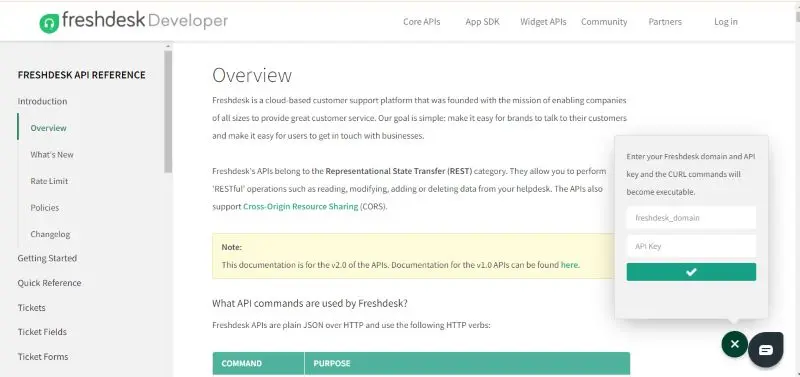Artificial Intelligence (AI) is transforming small businesses. It offers ways to simplify tasks and boost efficiency. AI lets small businesses automate boring tasks. They can use data to make decisions and personalize experiences. This tech isn’t only for large companies. Small businesses are also using AI to compete and grow.
AI Tools for Small Business
As you consider integrating AI into your small business operations, it’s crucial to start with a clear understanding of the specific areas where AI can have the most impact. This will help you prioritize which AI tools and solutions to implement first for maximum benefit.
- Automation: AI automates the boring stuff, saves time and effort.
- Data Analysis: AI tools analyze big data. They provide insights to help you make better decisions.
- Personalization: AI boosts marketing and customer experiences with targeted ads and personalized recommendations.
- Cost Efficiency: AI cuts costs and boosts ROI by optimizing resources.
- Scalability: AI tools grow with your business so you stay efficient as you grow.
AI Tools for Small Business
Small businesses are using AI to boost their operations. Now, we need to identify the most impactful tools. Each AI tool has unique features for different business needs, such as customer service and finance. In this section, we’ll explore the top AI tools. We’ll detail their features, benefits, and how they can support your business. Let’s get into it and find out which one is right for you.
1. HubSpot
HubSpot is an AI-driven platform for marketing, sales, and customer service. This platform is made for small businesses. It offers tools for marketing, managing customers, and boosting sales. Its AI features include analytics, tailored marketing, and insights into customers. This makes it ideal for growth and enhancement.

Features:
- Marketing Automation: It automates email marketing, social media posts, and lead nurturing. This saves time and boosts campaign results.
- Sales Tools: AI-powered lead scoring, pipeline management, and sales forecasting.
- Customer Service: AI chatbots and a ticketing system boost support and satisfaction.
- Analytics and Reporting: Get detailed reports on marketing, sales, and customer behavior.
Pros:
- All in one: Integrates marketing, sales and service into one platform.
- Easy to use: User friendly interface with loads of support and training resources.
- Scalable: Suitable for growing businesses with flexible plans and features.
Cons:
- Cost: Can be expensive especially for small businesses or startups.
- Complexity: Takes time to fully utilize all features and tools.
2. Zoho CRM
Zoho CRM is an AI-driven tool for small businesses. It aids in sales, marketing, and customer support. The tool automates tasks, analyzes data, and boosts sales. Its AI includes predictive analytics, lead scoring, and automation. This makes it perfect for enhancing customer relationships.

Features:
- Lead and Contact Management: AI scores leads and manages contacts, prioritizing hot leads.
- Sales Automation: Automates follow-ups and data entry, streamlining the sales process.
- Analytics: AI powered insights into sales performance, customer behavior and marketing results.
- Customization: Customizable modules and workflows to fit your business.
Pros:
- Affordable: Competitive pricing plans for small businesses.
- Customization: Flexible and customizable to suit your business needs.
- Integration: Integrates with other Zoho products and third party apps.
Cons:
- Setup Complexity: Some users find the setup and configuration process complicated.
- Limited Integrations: Fewer integrations than some other CRM platforms.
3. Freshdesk
Freshdesk is an AI-powered customer support platform. It helps small businesses manage requests and tickets, reducing response times. Its AI features, like ticket routing, chatbots, and analytics, enhance operations and service.

Features:
- AI Chatbots: They automate responses to common customer questions.
They reduce the support team’s workload and response time. - Ticket Management: AI routes and prioritizes support requests.
- Knowledge Base: A self-service portal with AI tips to help customers find answers.
- Analytics and Reporting: Insights into support performance, customer satisfaction and ticket trends.
Pros:
- Easy to use: Simple and easy to set up interface.
- Automation: Reduces manual work with automated ticket handling and response features.
- Scalable: Flexible plans to grow with your business.
Cons:
- Customization Limits: Some users find customization options limited compared to other platforms.
- Cost: Premium features can add up for businesses with advanced requirements.
4. Xero
Xero is a cloud accounting software for small businesses. It simplifies financial management. Xero uses AI for bookkeeping, report generation, and real-time insights. Its features include automatic reconciliation, expense tracking, and financial forecasting. This makes managing finances accurate and easy.

Features:
- Auto Reconciliation: AI does the work for you. It matches bank transactions to accounting records.
- Expense Tracking: AI captures and categorizes expenses for you.
- Reporting: Real-time financial reports and forecasts to help you plan.
- Integrations: Connects to other apps to supercharge functionality.
Pros:
- Easy to Use: Non-accounting people can use it.
- Automation: Reduces bookkeeping tasks.
- Cloud: Access from anywhere.
Cons:
- Limited Functionality: Some advanced accounting features may not be available.
- Steep Learning Curve: New users will need some time to get up to speed.
5. Drift
Drift is a platform for conversational marketing and sales. It uses AI to engage customers and generate leads. Its chatbots and messaging tools allow businesses to talk to visitors instantly. They can also qualify leads and automate follow-ups. AI Drift uses AI to help businesses. It creates personalized experiences and boosts conversions with targeted messaging.

Features:
Drift has features to help you manage customer interactions and leads. Here’s how AI works for you:
- AI Chatbots: They talk to website visitors in real-time. They respond immediately and qualify leads based on your rules.
- Conversational Marketing: It uses AI to start and manage chats with potential customers. It guides them through the sales funnel.
- Lead Scoring and Routing: AI scores leads and routes the best to the right sales reps.
- Analytics: Shows chat performance, visitor behavior and lead conversion rates.
Pros:
- Real-Time: Allows instant communication with visitors, increases engagement and lead conversion.
- Personalization: Bases interactions on visitor behavior and preferences.
- Lead Management: Automates lead qualification and routing, saves time for sales teams.
Cons:
- Complex Setup: Initial setup and customization can be time consuming.
- Cost: Pricing may be too high for small businesses with limited budget.
6. Grammarly
Grammarly is an AI tool that enhances writing for both businesses and individuals. It offers real-time suggestions for grammar, spelling, and style. This ensures content is clear, professional, and error-free. Additionally, its AI provides contextual advice, making it essential for polished documents.

Features:
Grammarly’s AI works to improve writing and efficiency. Here’s what it does:
- Grammar and Spell Check: Automatically detects and fixes grammar, spelling and punctuation errors.
- Style Suggestions: Suggest ways to improve clarity, tone, and style, based on the context of the writing.
- Plagiarism Detection: It checks a large database to find and prevent accidental plagiarism.
- Writing Insights: Gives feedback on writing habits and areas to improve.
Pros:
- Accurate: Provides precise grammar and style suggestions for better communication.
- Easy to Use: User friendly interface that integrates with all writing platforms.
- Versatile: Works for all types of writing, from emails to documents.
Cons:
- Premium Features Cost: Plagiarism detection is a premium feature.
- Context Limitations: May miss subtle or context specific errors.
7. Monday.com
Monday.com is a project management tool. It uses AI to boost team productivity and speed up projects. It has tools to help businesses plan, track and manage projects in a team environment. With AI, Monday.com streamlines workflows and automates tasks. It provides insights to keep projects on track.

Monday.com uses AI for project management and team collaboration. Here’s what it does:
- Workflow Automation: It automates tasks like updates and notifications. This cuts down on manual work.
- AI Dashboards: Offers real-time project insights, helping teams make decisions based on data.
- Task Management: AI assigns tasks based on team workload and project needs.
- Collaborative Tools: These tools allow team members to communicate and share files easily.
Pros:
- Flexible: Very flexible and customizable to fit project management needs.
- User Friendly: Simple interface to track projects and team communication.
- Automation: Reduces manual work with advanced workflow automation.
Cons:
- Learning Curve: Initial setup and customization takes time and effort to get it right.
- Cost: Gets expensive as more features and larger teams are added.
8. QuickBooks Online
QuickBooks Online is a web-based accounting tool for small businesses. It helps them manage their finances with ease. It uses AI to automate accounting tasks, generate financial reports and bookkeeping. QuickBooks Online’s AI features include expense tracking and invoice management. It also does financial forecasting. It’s a one-stop solution for managing business finances.

Features:
QuickBooks Online uses AI to simplify financial management and bookkeeping. Here are the features:
- Expense Tracking: AI tracks and categorizes expenses. It helps you manage business spending easily.
- Invoice Management: Uses AI to create, send, and track invoices, and manage payments.
- Financial Reporting: Offers real-time reports and insights for better financial decisions.
- Bank Reconciliation: AI matches bank transactions with accounting records, reduces manual reconciliation efforts.
Pros:
- Ease of Use: Simple interface for users with no accounting knowledge.
- Automation: Automates key accounting tasks like expense tracking and invoice generation.
- Cloud-Based: Accessible from anywhere, convenient for managing finances.
Cons:
- Limited Customization: Some advanced features may be limited compared to specialized software.
- Pricing: Costs add up with additional features and higher plans.
9. ChatGPT
ChatGPT, created by OpenAI, is an advanced AI model that generates human-like text. It serves in customer support, content creation, and as a virtual assistant. Leveraging natural language processing, it offers relevant responses and aids in various tasks.

Features:
ChatGPT’s AI features are designed to facilitate and improve communication. Here are the features:
- Natural Language Understanding: Processes and responds to user queries.
- Conversational: Suitable for customer support, virtual assistant and chatbots.
- Content Generation: Produces articles, emails, and social media posts from user input.
- Ongoing Dialogue: Keeps track of conversations, ensuring responses are relevant and accurate.
Pros:
- Versatility: Can be used for customer support, content creation and personal assistance.
- Advanced NLP: High quality natural language understanding and generation.
- Customizable: Can be fine tuned for specific tasks or industries.
Cons:
- Context Limitations: May not always provide deep context or understand subtle queries.
- Input Quality: Response quality depends on the clarity and specificity of the input.
10. Google Gemini
Google Gemini is a set of AI tools from Google. It aids in business, marketing, analytics, and customer engagement. Leveraging Google’s AI, Gemini provides predictive analytics, automated insights, and data visualization. This support helps in decision-making and business growth.

Features:
Google Gemini uses AI to offer a suite of business tools. Here are the features:
- Predictive Analytics: Uses AI to predict trends and behaviors to help you make data driven decisions.
- Automated Insights: Generates insights from data automatically, no manual analysis required.
- Data Visualization: Advanced visualization tools to present data in a simple and clear way.
- Integration: Integrates with other Google services and platforms for a single user experience.
Pros:
- Advanced Analytics: Powerful AI driven tools for predictive analytics and automated insights.
- Google Services Integration: It works well with other Google products. It makes them more functional and user-friendly.
- Data Visualization: Offers advanced visualization options to better understand data.
Cons:
- Complexity: May have a high learning curve for users not familiar with advanced analytics and AI tools.
- Cost: Premium features and services may cost extra.
Conclusion
In today’s fast paced business world, AI tools are a must have for small businesses to stay ahead and grow. These tools help businesses. They automate tasks, analyze data, and personalize experiences. They also save costs.
AI can help small businesses. It can automate tasks, improve decisions, and enhance customer interactions.It can help them manage costs and grow.
For marketing and customer management, tools like HubSpot and Zoho CRM are ideal. Meanwhile, Freshdesk and Xero are perfect for customer service and accounting support, respectively. Drift and Grammarly are examples of the many uses of AI, from communication to sales leads. ChatGPT and Google Gemini show the future of AI in conversational interfaces and data analytics.
When considering to use AI tools in your business, you need to evaluate your specific needs, budget and goals. Look for tools that fit your business processes and offer the features that will give you the most value. Also, check out real life case studies and implementation strategies to get a better understanding of how to use these tools.
In summary, using AI tools can boost your business’s productivity and performance. Stay informed about the latest AI trends and make strategic decisions to future proof your business in a digital world. AI can automate workflows, boost customer service, and optimize marketing. It can unlock new opportunities and advance your business.
For more tips and tools to enhance your productivity, visit MacroTechy. Explore our expert guides and discover the best solutions to streamline your workflow today.
